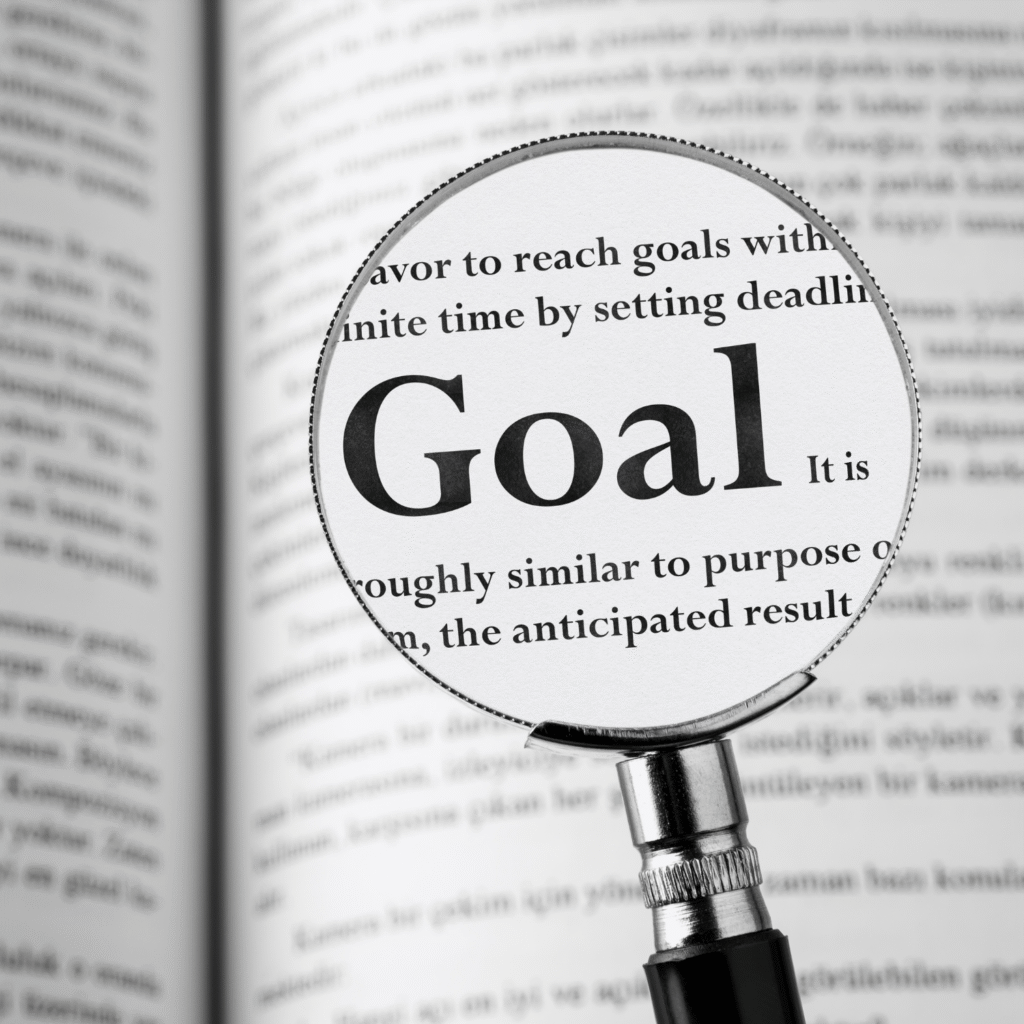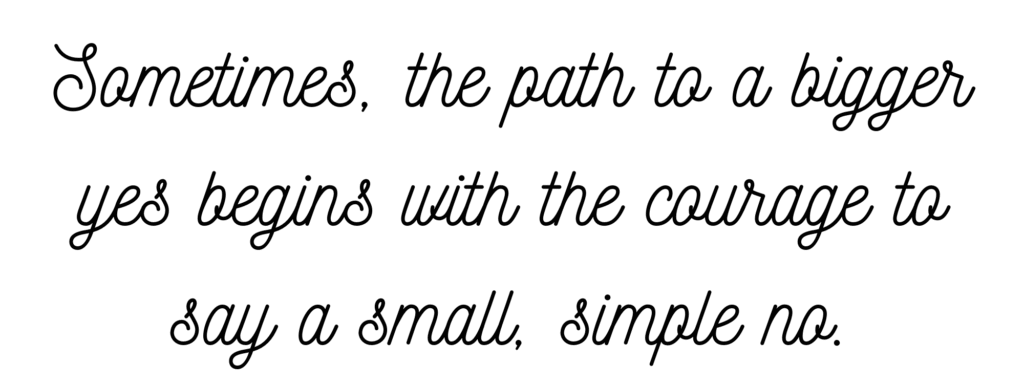We often think of growth as adding more—more goals, more habits, more commitments, more experiences. But sometimes, growth is not about adding. It’s about subtracting.

One of the most underrated skills in life is the ability to say a simple word: No.
It feels small, almost rude at times. We worry it will disappoint people or close doors. But the truth is, every “no” is also a doorway to something else. And more often than not, it creates space for a bigger, more meaningful yes.
Why “No” Feels So Hard

Think about the last time you wanted to say no but didn’t.
Maybe it was an extra task at work when you were already overwhelmed.
Maybe it was a social event you didn’t have the energy for.
Maybe it was agreeing to something that didn’t really align with your values—just to avoid conflict.
Saying no can feel uncomfortable. We’re wired to seek connection, and part of us fears rejection if we turn someone down. Society also praises busyness and availability, as though the more we say yes, the more valuable we are.
But here’s the irony: when we say yes to everything, we spread ourselves so thin that we stop showing up fully for the things that matter most.
The Hidden Cost of Every “Yes”

Every yes has a cost. It’s not just about time—it’s about energy, focus, and alignment.
When you say yes to staying up late binge-watching something, you’re saying no to being well-rested tomorrow.
When you say yes to everyone else’s priorities, you’re saying no to your own.
When you say yes out of guilt or fear, you’re saying no to peace of mind.
Most of us don’t pause to calculate this exchange. But once you do, you’ll realize that a “no” is not a loss—it’s a redirection.
The Power of a Bigger “Yes”
Here’s the shift: every time you say no to something misaligned, you create room for something better.
- Saying no to unhealthy habits creates space for healthier rhythms.
- Saying no to toxic relationships opens space for genuine connections.
- Saying no to overcommitment makes space for deep focus on what truly matters.

When you start guarding your yes, life feels lighter. Decisions feel clearer. And the things you do say yes to? They carry more meaning.
It’s like clearing clutter from a room. The more space you make, the more intentional you can be with what fills it.
A Personal Reflection
I remember a time when I was constantly overcommitted. My calendar looked full, but my energy was empty. I said yes to projects, to invitations, to responsibilities that deep down I didn’t want. I told myself I was being “helpful” or “responsible,” but really, I was afraid of disappointing others.
The turning point came with one simple word: no.
It wasn’t dramatic. I just decided not to accept another commitment that I knew would drain me. And at first, I felt guilty. But then something surprising happened: the space left by that no became the opening for something I had long been wanting to say yes to—a personal project I’d been putting off for years.
That no didn’t close a door. It opened one.
Practical Ways to Practice Saying No
Learning to say no gracefully is a skill. It doesn’t mean being cold, selfish, or dismissive. It means being clear about what truly matters to you.
Here are some practical ways to strengthen that skill:
1. Pause Before You Answer
You don’t owe anyone an immediate yes. Take a breath. Say, “Let me check and get back to you.” This gives you space to reflect instead of reacting.

2. Get Clear on Your Priorities
The clearer you are on your values and goals, the easier it is to measure requests against them. If it doesn’t align, it’s a no.

3. Use Kind but Firm Language
“No, I can’t take this on right now.”
“No, thank you—I need to focus on other priorities.”
Short, respectful, and without over-explaining.

4. Remember: A No to Them Is a Yes to You
You’re not just rejecting something—you’re protecting your energy, your time, your peace. That’s not selfish. That’s necessary.

5. Practice Small Nos
Start with the little things. Decline an extra portion of something you don’t want. Skip an event you don’t need to attend. Each small no builds confidence for the bigger ones.

The Peace That Follows
The first few nos will feel heavy. You might wrestle with guilt. But soon, you’ll notice something: peace.

Peace from not overcommitting.
Peace from not betraying your values.
Peace from knowing your yes actually means something.
And that peace is priceless.
Final Thoughts
Life is not about saying yes to everything. It’s about saying yes to the right things.
Every no you give is not just a refusal—it’s a quiet declaration of what matters most. And when you start honoring that, you’ll find that your yeses become stronger, clearer, and more life-giving.






